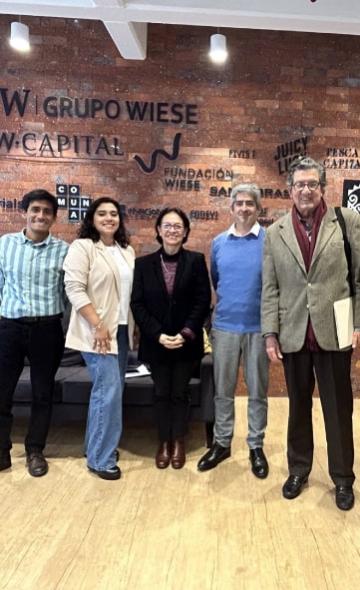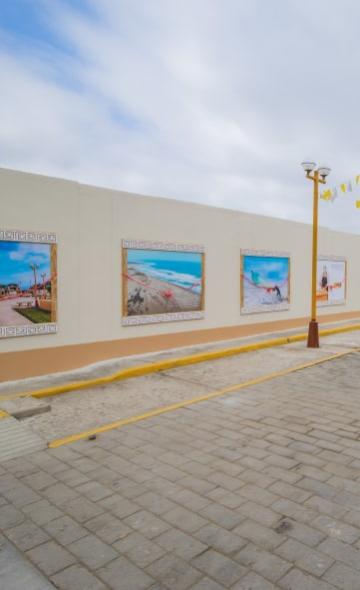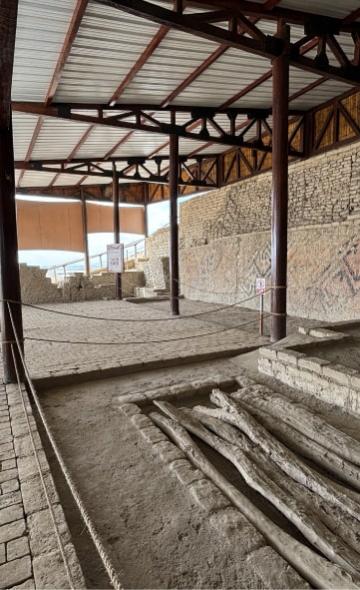- Visitors
- Researchers
- Students
- Community
- Information for the tourist
- Hours and fees
- How to get?
- Virtual tours
- Classic route
- Mystical route
- Specialized route
- Site museum
- Know the town
- Cultural Spaces
- Cao Museum
- Huaca Cao Viejo
- Huaca Prieta
- Huaca Cortada
- Ceremonial Well
- Walls
- Play at home
- Puzzle
- Trivia
- Memorize
- Crosswords
- Alphabet soup
- Crafts
- Pac-Man Moche
- Workshops and Inventory
- Micro-workshops
- Collections inventory
- News
- Community
- The Tenth International Colloquium on Archaeology culminates successfully and highlights the importance of heritage conservation
News
CategoriesSelect the category you want to see:
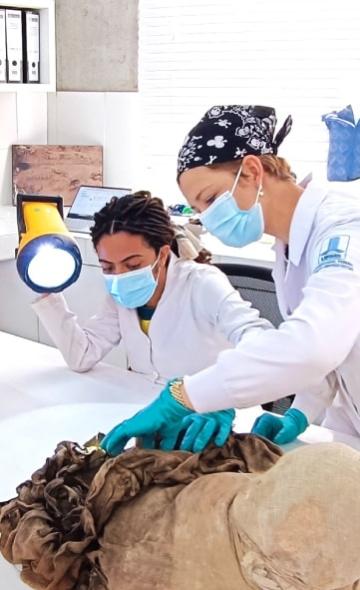
International academic cooperation between the Wiese Foundation and Universidad Federal de Mato Grosso do Sul ...
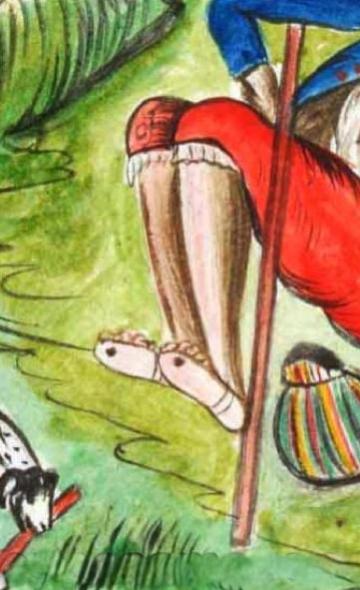
Clothing at El Brujo: footwear ...
To receive new news.
Por:
From August 13 to 15, the Wiese Foundation held with great success the Tenth International Colloquium on Archaeology, entitled "Preserving to recover our memory: The conservation of pre-Hispanic cultural heritage". This event gathered leading experts in archaeology, conservation and heritage management, among other disciplines, to discuss the current state of cultural heritage conservation in Peru and the world.
The tenth edition of the colloquium stood out for its focus on conservation praxis applied to archaeological sites, offering a unique perspective on the challenges and advances in the field. The virtual broadcast of the event allowed the active participation of participants from all over Peru and abroad, thus expanding its impact throughout the three days of presentations.
Day 1 - Cultural heritage, conservation and its management
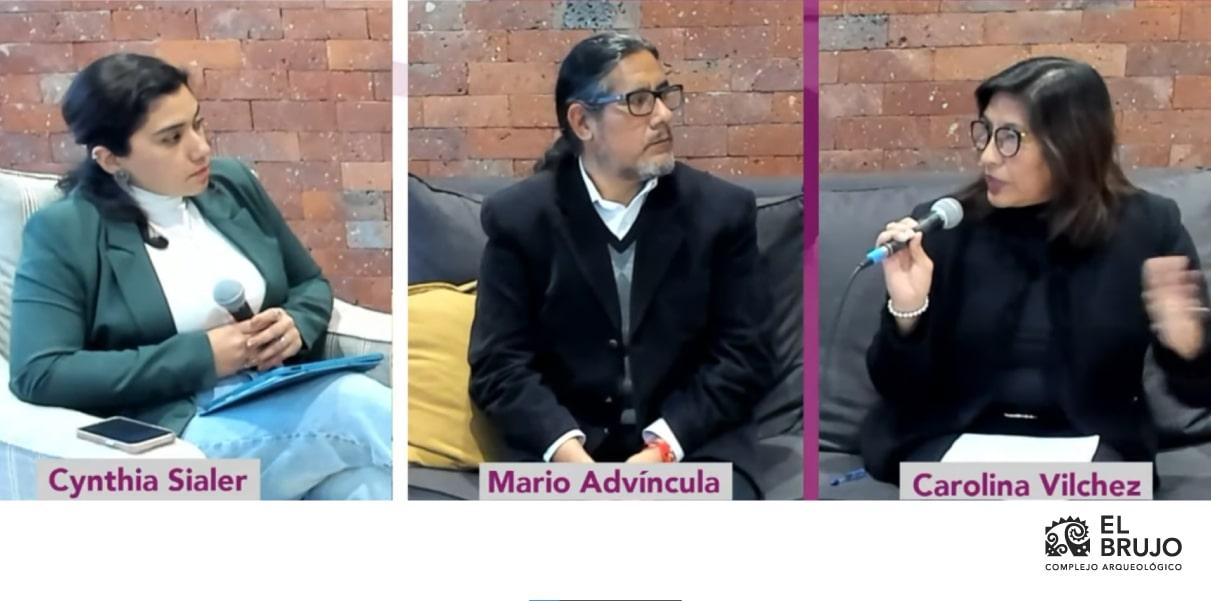
On the first day, the two blocks of the day focused on: i) starting the debate to rethink the role and meaning of cultural heritage conservation, and ii) presenting experiences that bring us closer to conservation management, highlighting how it becomes an instrument for social and economic development.
During the session, several key reflections were shared, highlighting that of the archaeologist and cultural manager Mario Advíncula: "The greatest challenge that we face is to reestablish the links between heritage and the community, transforming it into an educational resource that is integrated into co-management and is part of the public agenda."
Day 2 - Training linked to cultural heritage and its challenges in the 21st century
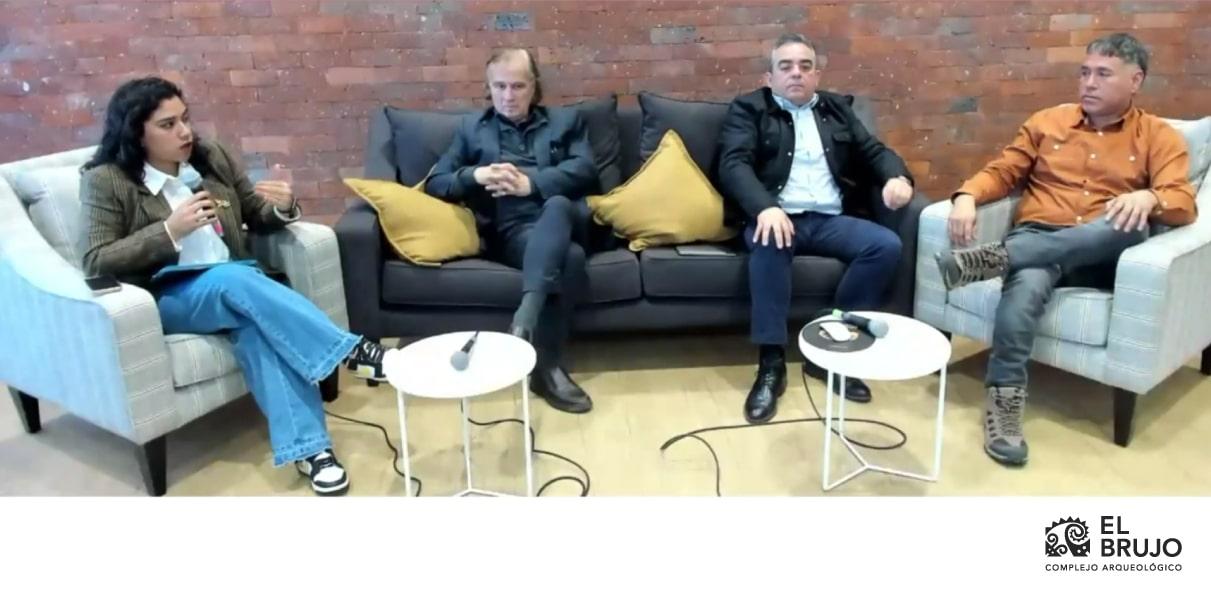
The second day of the colloquium was dedicated to reflecting on education, training and transmission of knowledge on the conservation of cultural heritage in Peru, addressing both national and international experiences. Francisco Quispetera, a restorer of immovable property, underscored: "Working with community members who possess specific knowledge about the site has allowed us to enrich and strengthen restorative intervention projects."
The opportunities that artificial intelligence and technological innovations offer to support the conservation of cultural heritage were also discussed. Javier Vera, professor of the Department of Humanities at PUCP University, commented: "Artificial intelligence in the humanities is making it possible to create innovative tools for the analysis of archaeological data and for generating new venues for interdisciplinary collaboration."
Day 3 - Heritage Conservation: Praxis
The third day focused on the presentation of relevant experiences in the conservation of immovable and movable property, delving deep into national and international practices.
One of the topics highlighted was the archaeological conservation in the El Brujo archaeological complex. Cinthya Sialer, head of immovable property conservation of the complex, presented the strategies implemented to preserve this important site, noting that "Conservation techniques and strategies have evolved over time. Nothing is set in stone: conservation is flexible and we must be attentive to changes, especially with technological advances."
Since 2020, the pillars of conservation in El Brujo include: monitoring, diagnosis, training, prevention, commitment and openness to change. Iraida Carbajal, from the Chankillo Archaeoastronomical Complex, and Lilian García-Alonso Alba, a researcher specializing in traditional technologies and ethnobotanical material in Mexico, also participated at this table.
Panel discussion and final thoughts
The colloquium concluded with a multidisciplinary panel of experts who offered final reflections, opening new opportunities for knowledge and promoting an integrated approach to face logistical and conservation challenges in archaeology.
Among the panelists were Elías Mujica, archaeologist and anthropologist at the World Monuments Fund; Santiago Alfaro, professor at the School of Government and Public Policy of PUCP University and external consultant for the Inter-American Development Bank in cultural heritage management; and Rosanna Kuon Arce, professor of Preventive Conservation in the Master's Degree in Museology and Cultural Management at Ricardo Palma University and researcher at the Research Center for Heritage Conservation-UTEC University.
With this tenth edition, the Wiese Foundation reaffirms its commitment to the preservation of cultural heritage, fostering dialogue and cooperation among experts and the community at large.
Relive the three dates of the colloquium by clicking on this link: https://www.elbrujo.pe/investigadores/eventos
Community , outstanding news


